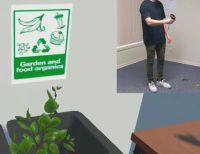24 June 2024
 As Australian governments continue to debate social media risks for children, new research from the University of South Australia suggests that an all-out ban could have detrimental effects for tweens.
As Australian governments continue to debate social media risks for children, new research from the University of South Australia suggests that an all-out ban could have detrimental effects for tweens.
In a new study, researchers found that young children aged 10-11 years, rely on technology to stay connected with immediate and extended families, and to generate a sense of belonging among their friends.
Lead researcher, UniSA’s Professor Sue Nichols, says the benefits of children’s access to, and use of, digital media is often overlooked.
“Current discussions about children’s use of digital media tends to be preoccupied with issues of risk,” Prof Nichols says.
“There’s a lot of talk around social media causing mental health issues, exposing children to inappropriate and pornographic content, and presenting an all-too-easy platform for cyberbullying.
“But what is typically omitted from these conversations is that digital technologies offer more than just risk, and we need to consider this fully before jumping ahead of ourselves.
“How young children use digital media is integral to how they live their lives so it’s vital that we consider children’s agency in a world that, for them, has always included technology.
“Primary children in the 10-11-year-old age bracket frequently use social media to connect with their family and friends, and do so through messages, video calls or playful and humorous apps.
“Social connection, a sense of belonging, practical assistance, and organising daily life are all benefits that children and families seek through digital media, with the immediacy, flexibility and multifunctionality of different apps being key to maintaining these relationships.
“Only when we contextualise digital technology in children’s lives, can we see the hidden benefits of digital connectivity.”
Funded by the Australian Research Council and the British Academy Foundation, the study engaged 62 grade five children (aged 10-11 years) in Australia and the UK to assess children’s use of digital media. At the time of publication, more than 40 different apps were being used by children (for gaming, creative production, searching, learning and education, communication, hobbies, life admin and so on), with the list rapidly expanding. Importantly, the use of digital media encompasses far more than just social apps.
Co-researcher, Dr Hannah Soong says any programs or policies put forward for children’s safe use of digital technologies must also be informed by children’s perspectives.
“It may come as a surprise, but children as young as 10 are more risk aware than you would expect, particularly as they’ve grown up with this technology,” Dr Soong says.
“Many children demonstrated their own criteria for what constitutes a risky interaction and are practicing strategies to limit their exposure to various kinds of online risks.
“Furthermore, when children’s knowledge of digital technologies and apps intensified, they became more equipped and empowered to navigate risky encounters.
“We are now at a crossroads where broad-brush decisions are being made about the use of social media. We only ask that the whole picture be considered, and that children have a voice in their digital space.”
…………………………………………………………………………………………………………………………..
Media contact: Annabel Mansfield E: [email protected] M: +61 479 182 489
Researchers: Prof Sue Nichols E: [email protected]
Dr Hannah Soong E: [email protected]
















